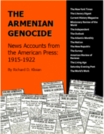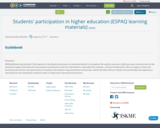
Links to additional resources on the Armenian Genocide
- Subject:
- History
- World History
- Material Type:
- Case Study
- Homework/Assignment
- Author:
- Amit
- Date Added:
- 06/12/2021

Links to additional resources on the Armenian Genocide

This seminar considers "difference" and "sameness" as they have been conceived, experienced, and regulated by peoples of the Middle East, with a focus on the 19th and 20th centuries. The first half discusses the Ottoman Empire by exploring how this multiethnic, polyglot empire survived for several relatively peaceful centuries and what happened when its formula for existence was challenged by politics based on mono-ethnic states. The second half of the course focuses on post-Ottoman nation-states, such as Turkey and Egypt, and Western-mandated Arab states, such as Syria, Lebanon, Palestine, and Iraq. Finally, the course concludes with a case analysis of Israel.

A Lesson Plan based on The Armenian Genocide – News Accounts from the American Press, 1915-1922This curriculum extracts articles from the book, “The Armenian Genocide: News Accounts from the American Press,” compiled by Richard Kloian (available from GenEd and can be ordered for $25 by emailing). Including 200 New York Times articles, other journalistic accounts, U.S. Ambassador Morgenthau’s personal account of the genocide, survivor accounts, telegrams from the genocide perpetrator, photographs, and more, the book presents a compelling chronicle of the systematic deportations and massacres of the Armenians of the Ottoman Empire, perpetrated by the Turkish governing authorities between 1915 and 1922. The lesson allows students to:Discuss the significance of the language used in the articles as it relates to a modern definition of genocideComprehend the extent to which American readers/public were aware of the persecution against Armenians by Ottoman rulers.Understand the importance of media in exposing and preventing human rights abuses

The Stages of Genocide Toolkit contains six case studies of historical genocide:• Armenian Genocide• Genocide in Cambodia• Genocide in Guatemala• The Holocaust• Genocide of Native Americans in the United States• Genocide in RwandaThese specific case studies were chosen for their wide geographic range and their place in modern historical chronology. It is important to note that these genocides are not the only examples of genocide that one can find throughout history, nor do the authors of this toolkit consider them to be “worse” or more important than those that are not included in this toolkit. We believe strongly that there is no place for a “hierarchy of suffering” in genocide education. Additionally, these summaries are not meant to be comprehensive histories of each genocide. They were written to align with Dr. Gregory Stanton’s Ten Stages of Genocide and as such, there are many historical details that are not included in the summaries.

ESPAQ (Enhancing Students' Participation in the Quality Assurance in Armenia) aimed to strengthen the quality assurance (QA) processes and practices in the Armenian higher education by ensuring the involvement of all the stakeholders, especially the students – the key beneficiaries.
We are happy to share the learning materials for next generation of students and students' representatives in Armenia, which will allow them to deepen the knowledge and experience and empower next Armenian students ready to shape their learning environment.